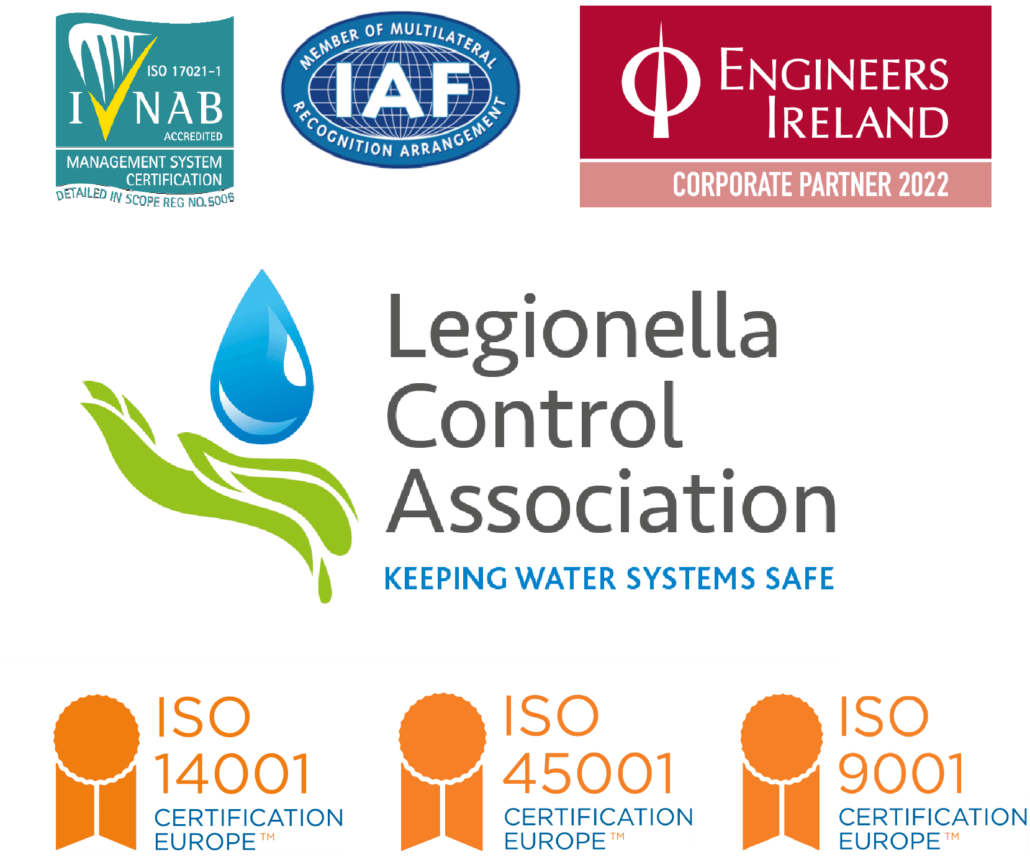Water Treatment Options for Heating & Cooling Closed Systems
Well maintained closed loop water systems deliver the most efficient, and therefore cost effective system that meets the demand of a changing environment.
Closed system water treatment helps prevent scale, corrosion, and bacteria build-up, which can cause reduced efficiency and blocked valves. We use a number of water treatment chemicals and equipment to treat potential problems and our experienced engineers allow us to manage the water chemistry effectively.
There are a number of things that can happen inside the system that can significantly affect its thermal performance, reduce efficiency and impact reliability and system longevity.
In this blog we identify the main problems that can cause closed water systems to perform poorly or even fail and what can be done to prevent it happening.
Bacteria in closed systems
Unfortunately, there are lots of waterborne bacteria that can set up home in closed recirculating water systems. When internal conditions are favourable, the system can give bacteria everything they need to grow and thrive, and this is when problems arise.
If you don’t take adequate steps to minimise the risks to your water systems, then you could soon be faced with the very real dangers from bacteria including legionella.
Legionella can cause serious illness, so it’s essential that you identify any risk areas quickly and know exactly what steps to take to control them.
What are the main problems in closed systems
There are three main problems that can affect closed systems and they are:
- CORROSION
- BIOFOULING
- SCALE
If left unchecked, any of these factors can cause havoc in a closed heating, chilled or cooling water system… but what exactly are they, what do they look like and what causes them?
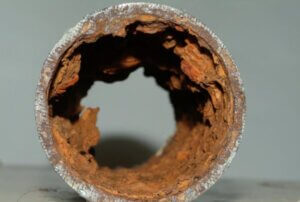
Corrosion
Corrosion refers to the build-up of other types of by-products which are produced when metals start to corrode, decay and rot away.
It is the reduction of metal thickness leading which leads to the loss of mechanical strength and structural failure or breakdown. When the metal is lost in localised zones so as to give a cracklike structure, very considerable weakening may result from quite a small amount of metal loss.
Corrosion in your system also leads to the loss of time in availability of profile-making industrial equipment and reduced value of goods due to deterioration of appearance.
Once corrosion has a hold inside your water system, leaks will begin to appear in pipework, radiators, pumps and other components. Leaks and corrosion can quickly lead to a shorter lifespan for your pipes and other components in the system.
Corrosion by-products also create sludge, debris and suspended solids which can reduce water flow and clog important components such as pumps and heat exchangers leading to full or partial failure.
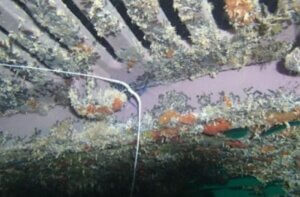
Biofouling
Biofouling describes the build-up of bacteria and slimes within a closed system. The bacterial slimes can start to coat the inside surfaces of pipes and other system components to cause a number of problems.
The growth of biofilms can restrict the internal flow of water, it can also coat heat transfer surfaces causing reduced thermal performance and lower energy efficiency.
It can cause serious health and safety issues as it promotes the growth of legionella, and other types of waterborne bacteria including pseudomonas.
Biofouling can also contribute to the amount of scale and corrosion inside the water system.
Legionella bacteria in turn feed off scale and corrosion by-products, so unless you identify the problems quickly, they may soon spiral out of control.
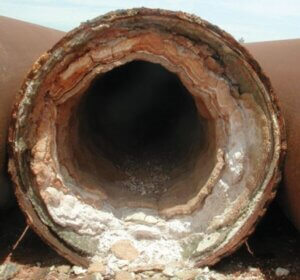
Scale
If scale begins to build-up in your closed water system it can quickly limit water flow, block pumps and other moving parts, and coat important internal surfaces such as heat exchangers.
Scale loves to form in warm areas, so heat exchangers are particularly affected and will not work efficiently when clogged up with scale.
You’ll spend much more on energy and in replacing components in your system if you allow surface scale to develop unchecked inside your closed system.
Options around your water treatment
When talking about water treatment you need to take a proactive approach instead of waiting for a problem to develop.
Any approach should start by looking at the system as a whole, the materials of construction and conditions inside the system before deciding on the most effective water treatment programme to use.
Once you have established exactly what type of closed system you are dealing with (closed heating, chilled or cooling) and you have worked out what water treatment approach is best, you should be in a good position to develop a plan for keeping it in tip-top condition.
It’s important that you take into account the local water pressure flowing through the system as this may affect the type of water treatment you use.
The materials from which the system is made will also affect how you deal with the water treatment.
Dosafil ®
When treating closed systems we have the upper hand – Dosafil ®.
Dosafil ® design and manufacture a range of innovative, high quality closed system water conditioning equipment.
This equipment saves you time, money and saves your system from all of the issues highlighted above. With serious eco- credentials these devices offer complete treatment of your system.
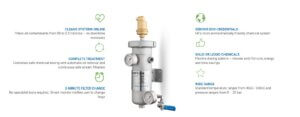
Pre-commissioning
Pre-commission cleaning and system flushing are specialist operations that all new closed systems should be subject to before being switched on and brought in to service.
The idea of system flushing is to proactively deal with any contamination including corrosion by-products, swarf, sludge and other debris which might be left over from the manufacturing and installation process and which if not removed may cause issues in the months or years to come.
Conclusion
Aquachem offer a comprehensive range of industrial solutions for the management of closed heating, chilled and cooling water systems. We maintain thermal performance, save energy, reduce maintenance costs and down-time, and extend plant and equipment life-cycles.
Find out how we can help improve the thermal performance of your closed systems, lower energy bills, reduce maintenance costs and down-time, and extend plant life-cycles.
Our industrial water treatment experts can provide advice and full support to help you identify the most appropriate strategies for managing your water systems.


